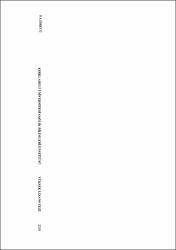Hemşirelerin Tamamlayıcı ve Alternatif Tedavi Yöntemlerine Yönelik Görüş ve Tutumları

Göster/
Erişim
info:eu-repo/semantics/openAccesshttp://creativecommons.org/licenses/by-nc-nd/3.0/us/Tarih
2018Üst veri
Tüm öğe kaydını gösterKünye
Görücü, R. (2018). Hemşirelerin Tamamlayıcı ve Alternatif Tedavi Yöntemlerine Yönelik Görüş ve Tutumları. Yüksek Lisans Tezi. Kırklareli Üniversitesi Sağlık Bilimleri Enstitüsü, Kırklareli.Özet
Bu araştırma, hemşirelerin tamamlayıcı ve alternatif tedavi yöntemlerine yönelik görüş ve tutumlarını saptamak amacıyla tanımlayıcı olarak yapıldı. Çalışmanın örneklemi (n=300), güç analizi yapılarak 0,5 etki büyüklüğünde ve 0,05 ? düzeyinde %95 güven aralığında hesaplandı. Araştırmanın evrenini, İstanbul Medeniyet Üniversitesi Göztepe Eğitim ve Araştırma Hastanesi, Fatih Sultan Mehmet Eğitim ve Araştırma Hastanesi, Dr. Siyami Ersek Göğüs Kalp ve Damar Cerrahisi Eğitim ve Araştırma Hastanelerinde çalışan hemşireler oluşturdu. Araştırmanın örneklemini ise, bu hemşireler arasından çalışmaya katılmaya gönüllü 300 hemşire oluşturdu. Çalışmanın verileri, literatür doğrultusunda hazırlanan soru formu kullanılarak toplandı. Verilerin değerlendirilmesinde yüzdelik, ortalama, standart sapma, Ki-kare testleri kullanıldı. Çalışmada, hemşirelerin Tamamlayıcı ve Alternatif Tedavi konusunda %11,0’nın yeterli bilgilerinin olmadığı, %46,7'sinin ismini duydukları ya da bildikleri Tamamlayıcı ve Alternatif Tedavi yöntemlerine ilişkin görüş bildirdikleri, %74.7’sinin kişisel olarak başvurdukları yöntemler hakkında görüşlerinin olumlu olduğu, bireysel olarak kullandıkları yöntemlerin uygulamada kullanımını destekledikleri ve %25,3’ünün Tamamlayıcı ve Alternatif Tedavi konusunun eğitim ve/veya müfredat programında bulunmasını istedikleri saptandı. Hemşirelerin Tamamlayıcı ve Alternatif Tedavi yöntemlerinin etki, güven ve kullanılabilirliğine ilişkin görüşleri arasındaki fark istatistiksel olarak anlamsız bulundu (p>0.05). Çalışmadan elde edilen sonuçlar doğrultusunda, ülkemizde hemşirelerin Tamamlayıcı ve Alternatif Tedavi yöntemlerine yönelik bilgi ve görüşlerini belirlemeye yönelik daha fazla araştırma yapılması ve Tamamlayıcı ve Alternatif Tedavi konusunda eğitici programların düzenlenerek bu konuda hemşirelerin bilgi sahibi olmasının sağlanması önerildi. This descriptive study was carried in order to discover the opinions and attitudes of nurses toward complementary and alternative treatment methods. The sample of the study (n=300) was calculated by power analysis with a confidence interval of 95%, alpha level of 0.05 and an effect size of 0.5. The universe of the study was composed of nurses who were working in the Goztepe Training and Research Hospital at Istanbul Medeniyet University, the Fatih Sultan Mehmet Training and Research Hospital and the Dr Siyami Ersek Thoracic and Cardiovascular Surgery Training and Research Hospital. The sample consisted of 300 nurses who expressed their willingness to participate in the study. The data for the study were collected using a questionnaire form prepared in accordance with the literature. Percentage, mean, standard deviation and Chi-Square tests were used to assess the data. In the study, it was found that 11% of the nurses did not have sufficient information about CAT, 46.7% stated that they had heard or knew about complementary and alternative treatment methods, 74.7% had positive opinions about the methods they used personally and supported the use of methods that they used individually in practice, and 25.3% wanted to include complementary and alternative Treatment in their education and/or in the curriculum. The difference between the opinions of nurses regarding the effects, their confidence in and the usefulness of complementary and alternative treatment methods was found to be statistically insignificant (p>0.05). On the basis of the results of the study, it is suggested that more studies be performed in Turkey to determine the knowledge and opinions of nurses regarding complementary and alternative Treatment methods, and that nurses be provided more information about this topic through the organization of training programs about complementary and alternative treatment.
Koleksiyonlar
- Tez Koleksiyonu [52]
Aşağıdaki lisans dosyası bu öğe ile ilişkilidir:



















